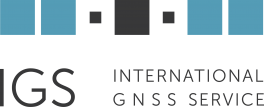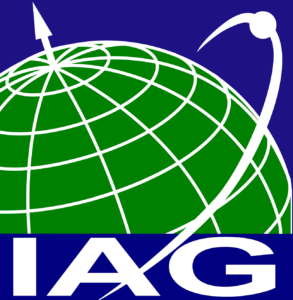International GNSS Service Working Group on
Inclusion, Diversity, Equity, and Accessibility (IDEA)
Charter
Last updated: 2024-06-12
Purpose
Diverse perspectives and experiences foster creativity and innovation, encouraging a variety of solutions to complex problems. Significant steps have been taken in the last five years to improve geographic diversity within the IGS: we have adjusted how we talk about geographic regions, we have welcomed new members strategically recruited from under-represented countries or regions, we have embraced virtual meetings and – considering our global workforce – have strived to schedule them at equitable times of day ; we have held workshops to genuinely build capacity and share our knowledge; and we are planning to host our first workshop in South America. To ensure that the IGS remains a sustainable organisation, we need to continue building on this great work, encouraging diverse and inclusive participation while inspiring the next generation of Associate and Governing Board members.
The International GNSS Service (IGS) Inclusion, Diversity, Equity, and Accessibility Working Group (IDEA WG) supports Goal 3 of the IGS 2021+ Strategic Plan, which aims to foster a resilient, sustainable, and effective organisation to support an expanding and evolving IGS community. The group builds upon the work of the IGS Governing Board Committee for Sustainable Working Group Governance, which identified a need for the working groups and committees to be more inclusive as a mechanism to sustain and invigorate their activities.
The IDEA WG aims to ensure that inclusivity, diversity, equity, and accessibility are fully considered, addressed, and embedded within IGS activities and decisions. The initial focus will be on creation of a dedicated statement addressing our approach to equity, diversity, and inclusion to communicate the Service’s commitment being a welcoming and supportive organisation and ensuring this remains at the forefront of governance decisions. By actively tackling this issue, there is an opportunity for the IGS to continue to be a leader within the scientific community and meet our goal to foster the IGS as a resilient, sustainable, and effective organisation that supports an expanding and evolving global community.
Goals
Goal 3 of the IGS 2021+ Strategic Plan calls for IGS to “vigilantly maintain effective organisational resilience and sustainability […] as well as strengthening and developing diverse contributions to the IGS”. Furthermore, “[t]he desired outcome is a well-managed and supported organisation with a diverse user base, and a well-defined vision and means for the future”. In alignment with the strategic plan, goals of the IDEA WG will include actions toward the achieving and monitoring progress on the following IGS strategic objectives:
Objective 3.2 – Coordinate innovation and diversity in technological and geographical infrastructure
- Increase contributions to the IGS through diverse sources.
- Articulate how diversity and inclusion contributes to the IGS value proposition.
- Develop a better understanding of IGS users and their needs.
Objective 3.3 – Incubating organisational sustainability and resilience through personnel redundancy and modularity
- Encourage geographical diversity in component leadership, to represent different regional perspectives and needs as well as to better serve the IGS community through diversity in time zones.
- Encourage generational diversity in component leadership, to ensure knowledge transfer and strategic redundancy, as well as to facilitate long-term operational sustainability.
Objective 3.4 – Advocate for open access geodetic and multi-GNSS data, products, and metadata via alignments with major United Nations frameworks and national/regional agendas
- Articulate and raise awareness of alignment of IGS EDI to relevant targets of the United Nations Sustainable Development Goals, Goal 17 (Partnerships for the Goals):
- Target 17.5: Invest in least developed countries
- Target 17.6: Knowledge sharing and cooperation for access to science, technology, and innovation
- Target 17.8: Strengthen the science, technology, and innovation capacity for least developed countries
- Target 17.G: Enhance the global partnership for sustainable development
- Articulate and raise awareness of alignment of IGS EDI to relevant targets of the United Nations Sustainable Development Goals, Goal 16 (Peace, Justice, and Strong Institutions):
- Target 16.6: Develop effective, accountable, and transparent institutions
- Target 16.7: Ensure responsive, inclusive, and representative decision-making
- Target 16.8: Strengthen the participation in global governance
- Articulate and raise awareness of alignment of IGS EDI to relevant targets of the United Nations Sustainable Development Goals, Goal 5 (Gender Equality):
- Target 5.5: Ensure full participation in leadership and decision-making
Key Considerations
Diversity is about cultivating an organisational environment that embraces the richness of varied perspectives, backgrounds, and experiences to drive innovation, foster creativity, and enhance overall organisational performance.
Equity is about promoting fairness and justice by recognising and addressing the unique needs and circumstances of individuals; it is not equality (treating everyone the same).
Inclusion is about creating a welcoming and affirming environment where every individual, regardless of their background or identity, feels valued, respected, and empowered to contribute their unique perspectives and talents.
Accessibility is about ensuring that all individuals, regardless of their abilities or disabilities, have equal access to information, services, and physical spaces, fostering an inclusive environment for everyone.
Given the above Strategic objectives and considering the needs and opportunities stemming from a deeply dynamic and interconnected world, the IDEA WG shall address the following key considerations in particular.
-
- Diversity: geographic locations, socioeconomic and educational backgrounds, career levels and/or tenure statuses, ages, types of institution, gender, ethnic backgrounds, and disabilities.
- Equity: timing arrangements (e.g., time zones scheduling), development opportunities (e.g., possibility to propose new approaches and ideas), recognition within the Service, and workload distribution.
- Inclusion: collaborative environments, open communication, welcoming of diverse perspectives, cultural awareness, and availability of support.
- Accessibility: digitally accessible formats, accommodation options (e.g., time zones scheduling), sensory considerations (e.g., consideration for colour-blind individuals when designing IGS plots and products).
Objectives and Expected Deliverables
IDEA Statement
The IDEA WG shall develop an official IGS statement on Equity, Diversity, and Inclusion. This statement will support the promotion of the IGS as a welcoming and inclusive organisation, in alignment with the objectives of IGS Strategic Goal 3: Build Sustainability and Resilience. The statement shall highlight the aforementioned key considerations.
Guidelines for IGS Components
The IDEA WG shall develop a lightweight guide to help IGS Components assess and improve their commitment to developing IDEA within themselves. The guide shall provide explicit suggestions to address the aforementioned key considerations. It shall also provide a point of contact for DEIA concerns within the IGS – which may be at first this very IDEA group. Importantly, the guide shall capture the reasons behind the lack of participation from some regions, and how to palliate this issue in particular. Finally, the guide may refer to further documentation already developed by other institutions.
Monitoring of Progress
The IDEA WG shall develop a strategy to assess and monitor the fulfilment of the aforementioned plan for diversity, equity, inclusion, and accessibility. In response to any eventual shortcomings, the IDEA WG shall provide pinpointed strategies and actions to palliate those. A particular accent shall be put on unconscious bias, hostile verbiage, and unwelcoming meeting environments. This work will take into account the IGS nature as a voluntary community that depends on the willingness of individuals to contribute their time, and on the decisions of IGS governance, Associate Members and Contributing Organizations to nominate representatives. The IDEA WG shall provide an annual report on the level of fulfilment of the plan among IGS Components, namely on the following fronts: the IGS Governing Board, the IGS Committees, overall Committee and Working Group leadership, speakers and audiences at IGS-led events, and locations and delivery methods (in-person, hybrid, virtual) of IGS-organised events.
Timeline
The Table below describes the expected time frame for the development of the IGS IDEA plan and delivery of the aforementioned objectives.
| Objective | Deadline |
| IDEA Statement | July 2024 |
| Guidelines Leaflet | December 2024 |
| Monitoring Strategy | December 2024 |
| Monitoring of Progress | December 2024 onwards |
Membership
Participation in the IDEA WG is open to all IGS Associate Members, which may consider gender and generational balance, regional representation, or other relevant factors. As a reminder, AM applications are subject to review by the IGS Governing Board. IDEA WG members are responsible for:
- maintaining the confidentiality of sensitive information,
- actively contributing in some way to the working group, and
- attending events organised by the working group.




